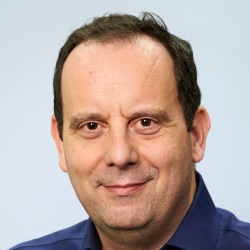The rapidly changing science of clinical genetics and the complexity of its associated ethical, legal, and social (ELSI) issues call for novel approaches to information delivery and education of healthcare professionals and the public. Compared to traditional communication methodologies, arts-based methods offer a way to reach a wider variety of audiences and engage them in multi-sensory, experiential learning.
The project is relevant to public health because it will explore the risks and benefits of nontraditional biological experimentation, which is currently conducted largely beyond the reach of external regulation, and consider what regulatory approach would best serve the public interest.
The Secret of Life is a series of eight, 60-minute programs for PBS broadcast with extensive educational and outreach materials. The goal of the program is to make molecular biology intelligible to the audience, to demonstrate the extent to which it has transformed the biological and medical sciences, and to explore the pressing issues it raises. The materials will debunk tabloid images of laboratory-created monsters and headlines of miracle cancer cures, and bring subjects to life through tales of discovery, personal case studies, and engaging histories.
Educational objectives of the Human Genome Mapping Center at Stanford University will be achieved by an educational outreach program designed to provide the public with a basic, working understanding of the science behind, applications of, and ethical issues raised by the HGP. The first aim is to develop and present in high school classrooms a curriculum consisting of lab experiments and dry-lab exercises using three-dimensional models.
Building on the experiences and products of the Human Genome Education Model Project (1993-1997), Georgetown University Child Development Center and the Alliance of Genetic Support groups plan to use the collaborative (consumer and health professional) education model to educate allied health professionals through their respective national organizations. The overall goal is to derive optimal benefit from development of the Human Genome Project for allied health professionals and the clients they serve.
This project is a multi-step cooperative educational effort to target both consumers and multidisciplinary health professionals for education on the Human Genome Project and its ethical, legal, and social implications. The current attitudes and knowledge of consumers and non-genetic health professionals, two groups ill informed about the Human Genome Project and its implications, will be assessed. These findings will be used to develop a Human Genome Educational Model (HuGEM) for these groups. Then, 160 consumers and 160 multidisciplinary health professional leaders in two U.S.
The objective of this project is to determine what key professionals need to know about the ethical, legal, and social ramifications of the genome project and how these needs can best be met. Working with four professional groups -- appellate judges, journalists, human resources executives, and high school biology teachers -- an educational program will be developed that will be broad enough to satisfy the common needs of the four professional groups, yet tailored to meet the specific demands of their differing professions.

